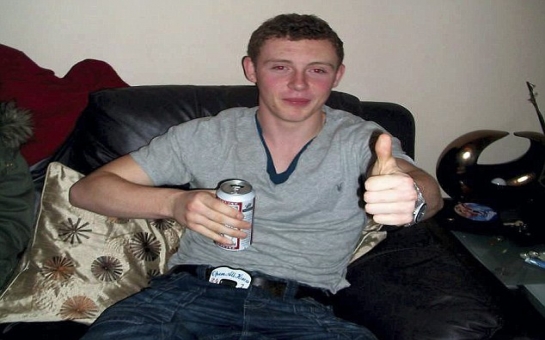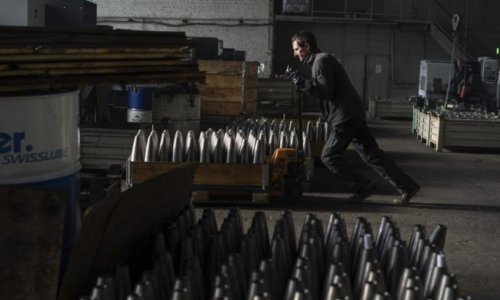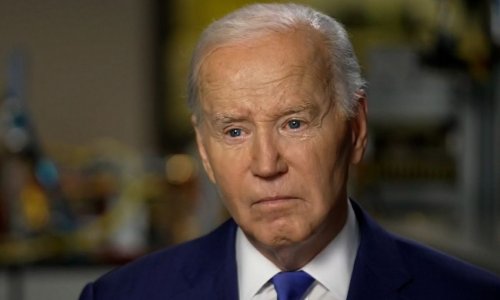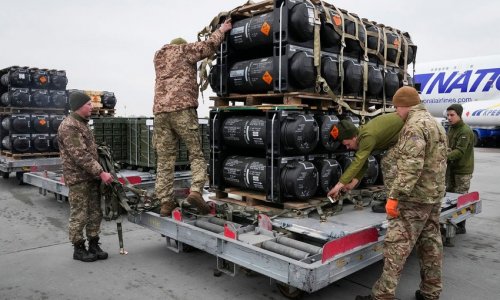Follow us !
Worrying truth about the energy drink
World
17:00 | 06.02.2014

Worrying truth about the energy drink
Teenager Joshua Merrick had his whole life ahead of him. The 19-year-old had just finished college and was set to join the Royal Navy. A talented rugby player, he was hugely popular, with one friend describing him as 'the most loyal person I knew'.But in January last year, Joshua was found by his father, having died quite suddenly in his sleep. An inquest this week heard the teenager had been drinking a high-caffeine energy drink called Animal Rage to boost his work-outs. While the verdict was that Joshua died of natural causes, the doctor who conducted toxicology tests on his body said she could not rule out the possibility the drinks contributed to his death.Josh's death is the latest in a number of incidents that have been linked to energy drinks, fuelling concerns over these largely unregulated products. Particularly worrying is their popularity among children and teenagers.With some cans containing 13 teaspoons of sugar and the equivalent in caffeine of two cups of coffee, there is growing alarm over what these drinks are doing to the young body and brain.Campaigners say legislation is urgently needed to put age limits on the drinks.This week Josh's father, Andrew, told how he had been concerned about his son's love of energy drinks.'These products arrive on the market and are available to everyone without any checks being done.'Often parents have no idea that their children are drinking energy drinks, nor how much caffeine is in them.Mother of four Jenni Weaver was baffled by her 15-year-old daughter Gina's mysterious symptoms last year.'She started having really bad stomach cramps,' says Jenni, 40, from Bridlington, East Yorkshire. 'She'd have a spate of them for about three or four days and then they would die down. She was suffering headaches, too. I was so worried, but I couldn't work it out and neither could our family doctor.'In March, the pain got so bad that Gina, 15, had to be hospitalised and given morphine. 'The doctor couldn't establish what was causing it, so he asked Gina about her diet,' says Jenni.'She had a normal diet, but then she mentioned that she drank the energy drink Monster. She admitted she drank about three or four cans a day, which she was buying on her way to school. I had no idea - I'd thought there was an age-limit on them.'The doctor told her that she had to stop there and then because the sugar, caffeine and acid in these drinks was what was causing her pain.'Gina was consuming up to two litres of Monster a day, which is around 640mg of caffeine - the recommended daily limit for adults is 400mg.'I don't think she had any sense of what was in these things,' says Jenni. 'She just liked the taste and said all her friends were drinking them, too'Gina followed the doctor's advice and the stomach pains and headaches have ceased. She believes energy drinks should carry an age limit and a proper health warning.High in sugar, cleverly marketed and sold in supermarkets and shops alongside regular soft drinks, it's easy to see why children have taken to energy drinks.Last year, a major study found our children have one of the highest consumption rates in Europe. One in ten British teenagers consumes four to five energy drinks a week.Worryingly, younger children are following suit: one in four under-tens - 24 per cent - has had at least one energy drink in the past year, compared with the European average of 18 per cent. Now, experts are calling for them to be banned from sale to youngsters.In a paper last year, Dr Jack James, editor of the Journal of Caffeine Research, says caffeine should be regulated just like cigarettes and alcohol.'Although caffeine has been widely considered to be benign, awareness is increasing that its consumption is associated with substantial harm, including fatalities and near-fatalities,' he wrote. 'How many caffeine-related fatalities and near-misses must there be before we regulate?'Last month, a government adviser compared energy drinks with drugs, and urged schools to ban them.Some schools have done so, with many teachers complaining the drinks affect behaviour and concentration.'Some secondary school children come in having not had breakfast and started the day with one of these energy drinks,' says Brian Lightman, the general secretary of the Association of School and College Leaders.'They are very hyperactive, they can't sit still and can't concentrate. At the end of the day, they are very fractious, very tired and unable to concentrate.'However, the full extent of caffeine's effects on children is unclear.'We know that in adults caffeine raises the heart rate, blood pressure and body temperature and has psychological effects such as anxiety and sleep disturbances,' says Sioned Quirke, dietitian and spokesperson for the British Dietetic Association.'But there have been very few studies on caffeine's effect on children, so God knows what it's doing to them.'The problem is that children want to be grown up. They are so easily taken in by seeing older kids and adults doing something and so they copy.'A 2011 study in America reported on a number of cases where excessive caffeine consumption in energy drinks had been associated with effects such as 'seizures, mania, stroke and sudden death'.The researchers warned that high caffeine drinks were particularly risky for children with existing conditions such as heart arrhythmias, diabetes or mood and behavioural disorders, which may be undiagnosed.A post-mortem examination on Josh Merrick showed the young man had an unusually large heart, and it was suggested that this may have made him more susceptible to caffeine's effects.There are also concerns about combining energy drinks with sport. In October last year, France's public health agency ANSES warned: 'Because of their composition, these beverages have a stimulating effect which, when associated with certain other behaviours (alcohol consumption, sport, etc.), can give rise to serious cardiac accidents in consumers with common genetic predispositions which frequently go undiagnosed.'ANSES therefore recommends avoiding the consumption of so-called energy drinks in association with alcohol or during physical exercise.'Andrew Brown of Mentor, a drug and alcohol prevention charity for children and young people, says: 'Energy drinks can have different effects in different circumstances and on different people.'We know that three out of five teenagers are drinking them with sport even though this is not recommended and not necessary.' A study last year showed that energy drinks can change heart rhythms. A team of researchers at the University of Bonn in Germany scanned the hearts of 17 people an hour after they'd consumed an energy drink. They found the left ventricle of the heart, which pumps blood around the body, was contracting harder after the drink.France's public health agency has said young people who drink energy drinks are at risk of sleep disorders, daytime drowsiness and developing addictions to other substances.'A third of young people who consume energy drinks say they've mixed them with alcohol, and that worries us,' Andrew Brown says. ‘The caffeine makes the person feel less drunk, so they are less likely to stop, and end up drinking even more.'Josh Merrick's death is the latest of an alarming number of deaths and health complaints involving young people that have been linked to energy drinks.In 2008, 21-year-old student Chloe Leach, from Cottingham, East Yorkshire, collapsed and died after drinking four cans of Red Bull and a cocktail containing vodka and caffeine at a student party.A post-mortem examination found that Chloe probably had an undiagnosed heart condition, and the caffeine she consumed may have triggered faulty electrical activity in her heart.The same year, 14-year-old Naomi Haynes from the Isle of Wight was hospitalised after her energy drink habit reached 50 cans a week. Doctors warned her that her consumption of the drinks was putting her at risk of a heart attack.Meanwhile, in the U.S, the Food and Drug Administration is said to be investigating a number of deaths and hospitalisations linked to energy drinks. Two mothers are suing the manufacturer of Monster over the deaths of their children from heart attacks. The drinks have also been linked to emotional problems and suicide.In 2009, Bolton father Lee Johns, whose son, Tyler, hanged himself at the age of 11, said his son's behaviour changed after he started consuming energy drinks.Aside from the worries over caffeine content, many energy drinks are extremely high in sugar: one 250ml can of Red Bull contains five-and-a-half cubes, for example.Given the growing body of evidence that implicates sugar in a host of health problems, this is fuelling calls for the drinks to be more strongly regulated.With many children drinking several energy drinks a day, there are also concerns over addiction. In fact, caffeine is not addictive, but it does create dependency, says Peter Rogers, professor of biological psychology at Bristol University and a leading expert on caffeine.'Caffeine creates a state of dependency where if one stops taking it one feels tired, fatigued, headachey and studies show this happens in children as well,' he says.Louise Van de Velde believes her son, Jordan, developed an unhealthy relationship with Red Bull at the age of 14.'I didn't realise at first that he was drinking it. Then, when I did find out, he'd sneak cans into his room or have them at school.'But Louise noticed the drinks were causing her son to suffer from highs and lows.'He was really moody and never slept well - he'd be up till 4am playing computer games,' says Louise, 38, a relationship therapist and yoga teacher, from Surrey.'I kept telling him that he felt tired because of those drinks, and I banned them, but it didn't make any difference.'In the end, he got so stressed out and irritable that he realised he had to stop them. He did it gradually and did complain of tiredness for a while, but now he's fine and back to normal.'The British Soft Drinks Association says high-caffeine energy drinks are not recommended in the UK for consumption by children, and its code of practice states that products containing more than 150mg caffeine per litre must carry the warning: 'Not suitable for children, pregnant women and persons sensitive to caffeine.'But experts feel this does not go far enough. 'The marketing of these drinks is very attractive to young people,' says Andrew Brown. 'Brands associate themselves with cool stuff like extreme sports.'These are available next to soft drinks and many children don't really understand what the active ingredient is.'(dailymail.co.uk)ANN.Az










